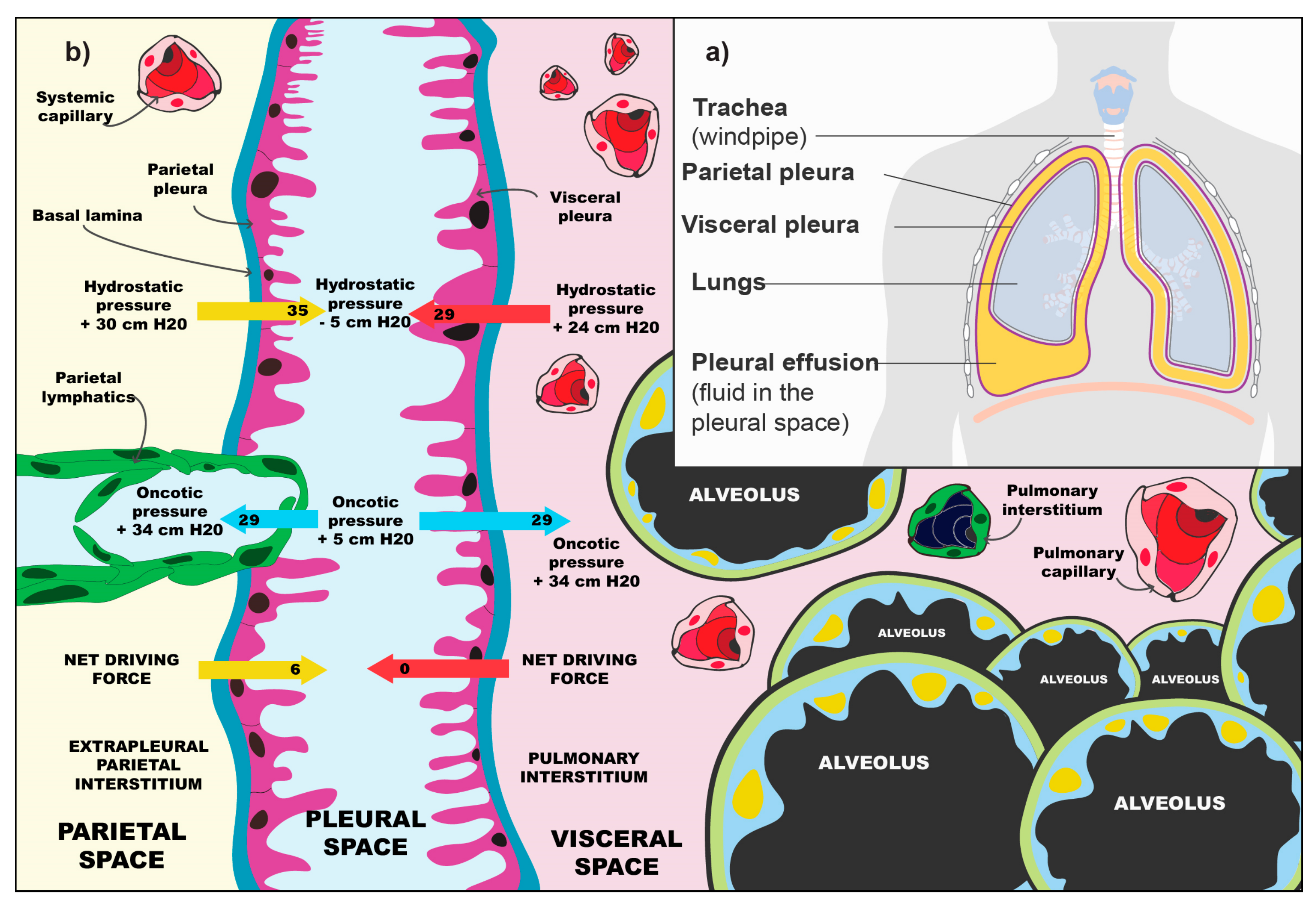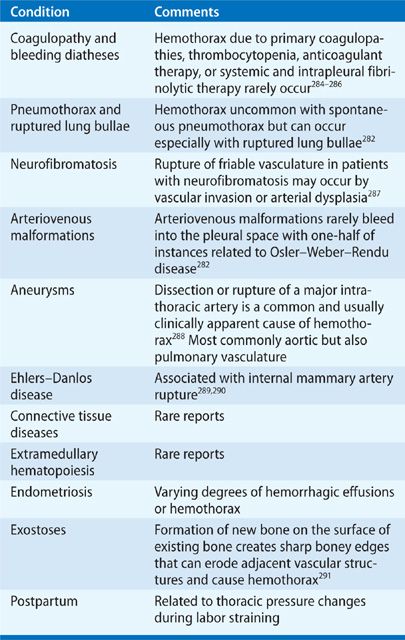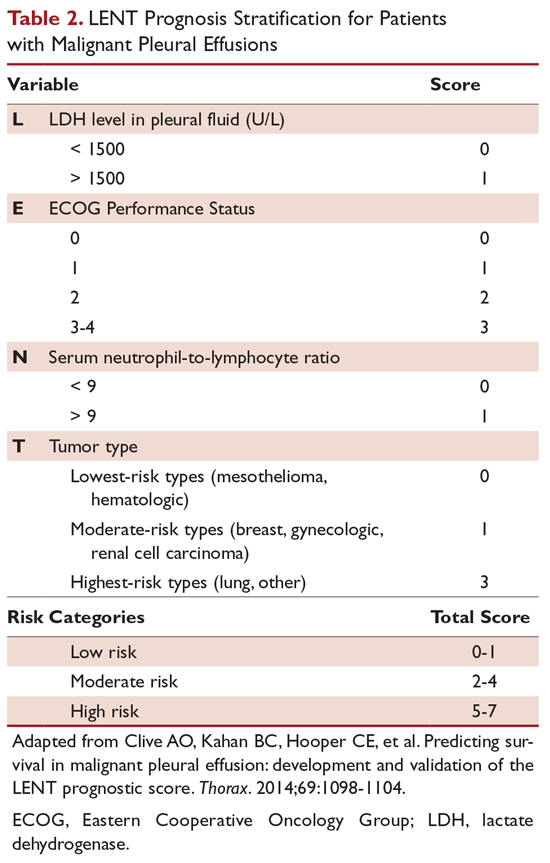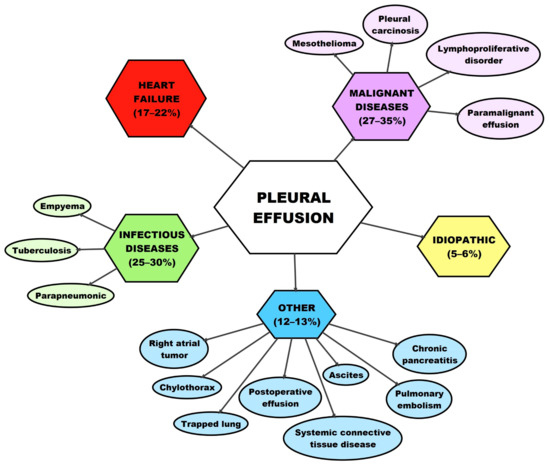what is the prognosis for malignant pleural effusion
This can make you. In some situations part or all of the lung will collapse.

Pdf Malignant Pleural Effusion Medical Approaches For Diagnosis And Management Semantic Scholar
Patients often require multiple invasive procedures in order to gain a diagnosis and manage their symptomatic pleural effusions which.

. The prognosis of cases where the effusion is due to carcinoma of the lung or due to cancer of the gastrointestinal tract or ovarian cancer is the poorest. Content on HealthTap including answers should not be used for medical advice diagnosis or treatment and interactions on HealthTap do not create a doctor. Pleural fluid ADA has a good diagnostic accuracy for tubercular pleural effusions in high prevalence areas.
Some patients with pleural effusion have no symptoms with the condition discovered on a chest x-ray that is performed for another reason. The fluid is also found in the pericardial and peritoneal spaces. Malignant pleural effusion MPE is a common and important clinical condition.
Symptomatic malignant pleural effusion is a common clinical problem. M anaging patients with malignant pleural effusion can be challenging. A malignant pleural effusion is when the fluid builds up because of cancer.
Patients in these stages often have a poor prognosis with an average life expectancy of less than six months. 3 doctor answers 7 doctors weighed in. The most common underlying tumors are lymphomas and cancers of the lung breast and ovaries which account.
With lung cancer a malignant pleural. A pleural effusion can be serious and potentially life-threatening but it is treatable. Symptoms are often distressing and its presence signifies advanced disease.
The average malignant pleural effusion life expectancy is a little less than six months with the median survival time being as less as four months. The pleural effusion is usually caused by a disturbance of the normal Starling forces regulating reabsorption of fluid in the pleural space secondary to obstruction of mediastinal lymph nodes draining the parietal pleura. Common symptoms of a pleural effusion include.
Malignant effusions may change the staging and subsequent prognosis of the underlying cancer. Malignant Pleural Effusion. Dyspnea is the most common symptom of MPE.
Malignant pleural effusion complicates the care of approximately 150000 people in the United States each year. 18 19 The most. The symptoms of pleural effusion can range from none to shortness of breath to coughing among others.
Patients with Malignant Pleural Effusions MPE have life expectancies ranging from 3 to 12 months depending on the type and stage of their primary malignancy. Malignant pleural effusion MPE is common with an estimated annual incidence of 150 000 in the USA alone and given the year-on-year increase in new cancer diagnoses the incidence is set to rise1 2 MPE represents advanced malignant disease and current guidelines quote median survivals of between 3 and 12 months3 Pleural and oncological treatment. Dyspnea may cause limitations in ability to perform activities of daily living in a substantial proportion of patients.
Development of a malignant pleural effusion is associated with a very poor prognosis with median survival of 4 months and mean survival of less than 1 year. If the underlying condition is a virus it will need to run its course. Malignant pleural effusion MPE is a common and important clinical condition.
A pleural effusion is a collection of fluid between the lung and ribcage. Statistics show that the median survival time 50 have died and 50 still. Closed pleural biopsy is the next step in the evaluation of.
Pleural fluid tumour markers may have a role in diagnosis of malignant pleural effusions where the cytology is negative and there is a high pretest probability of malignancy. This can cause you to feel short of breath andor have chest discomfort. Ad Pleural effusion occurs when the lining around the lungs fills with fluid and becomes.
It is a fairly common complication in a number of different cancers. The prognosis of the patient with a pleural effusion depends on the underlying condition. Neoplasm Malignant pleural effusion Prognosis Analysis Survival.
As previously mentioned this condition often indicates the presence of advanced stage lung cancer or breast cancer. The build-up of fluid presses on the lung making it difficult for the lung to expand fully. Malignant pleural effusion is a condition where excess fluid accumulates in the pleural space.
Prognosis of Malignant Pleural Effusion As previously mentioned this condition often indicates the presence of advanced stage lung cancer or breast cancer. If cancer grows in the pleural space it causes a malignant pleural effusion This condition is a sign that the cancer has spread or metastasized to other areas of the body. It occurs in around 7 to 23 of lung cancers but can also occur with other cancers such as breast cancer ovarian cancer leukemia and lymphomas.
Am J Respir Crit Care Med Vol. Median survival after diagnosis is 4 to 9 months 13 although prognosis varies considerably depending on the type and stage of the malignancy. The patient may have unrelated symptoms due to the disease or condition that has caused the effusionSymptoms of pleural effusion include.
The main symptom of malignant pleural effusions MPE is shortness of breath 57 typically progressive exertional dyspnea followed by cough 43. The most common form of cancer that starts in the pleura is mesothelioma a cancer often caused by exposure to asbestos. It represents disseminated disease and confers a poor prognosis.
What are symptoms of a pleural effusion. If due to heart failure cirrhosis or malignancy the effusion is likely to recur. A complication in many types of tumors its presence indicates the onset of the terminal stages of cancer.
Thus on a concluding note it can be said. However most patients with a pleural effusion have no long-term sequelae. Malignant pleural effusion National Cancer Institute.
Malignant Pleural Effusion A malignant pleural effusion MPE is the build up of fluid and cancer cells that collects between the chest wall and the lung. Malignant pleural effusion which is a common clinical problem in patients with cancer may be due to both primary thoracic tumours or to a metastatic spread in the chest and constitutes the first sign of disease in approximately 10 of patients. If there is a pleural effusion present then that means the cancer is metastatic.
How patients are best managed depends on clinical circumstances. The majority of patients with malignant pleural effusion will experience dyspnea. A malignant pleural effusion is a complication that involves the build-up of fluid containing cancer cells between the membranes that line the lungs.
This condition is associated with very high mortality with life expectancy ranging from 3 to 12 months. The presence of malignant tumour cells in the pleural. Doctors may be abl.
If cancer grows in the pleural space it causes a malignant pleural effusion This condition is a sign. A malignant pleural effusion MPE is often the first sign of cancer and it is a prognostic factor in patients with advanced disease. Studies are contributing evidence on an increasing number of therapeutic options therapeutic thoracentesis thoracoscopic ple.
Prognosis of Malignant Pleural Effusion. The greater the build-up of fluid the more likely symptoms will be noticeable. Malignant pleural effusion MPE is a common clinical problem that results in disabling breathlessness for patients with advanced malignancy.
MPE can be a complication of any malignancy but in patients with lung cancer. Life expectancy malignant pleural effusion. The diagnosis of a malignant pleural effusion is the first indication of a malignancy in 13 of patients with a malignant pleural effusion.
Effusions can happen in other parts of the body like around joints. Almost all cancers can potentially produce a pleural effusion.
Malignant Pleural Effusion Still A Long Way To Go Researcher An

Medicina Free Full Text Malignant Pleural Effusion And Its Current Management A Review Html

Malignant Pleural Effusion Management Keeping The Flood Gates Shut The Lancet Respiratory Medicine

Prognostic Factors For Survival After Surgical Palliation Of Malignant Pleural Effusion Journal Of Thoracic Oncology

Mortality Among Patients With Pleural Effusion Undergoing Thoracentesis European Respiratory Society

Ers Eacts Statement On The Management Of Malignant Pleural Effusions European Respiratory Society

Prognostic Impact Of Malignant Pleural Effusion At Presentation In Patients With Metastatic Non Small Cell Lung Cancer Journal Of Thoracic Oncology

The Diagnostic Steps In Suspected Malignant Pleural Effusion Table 1 Download Scientific Diagram

Malignant Pleural Effusion 03102017 Youtube

Malignant Pleural Effusions Thoracic Key

Treatment Options For Malignant Pleural Effusions Download Table

Prognostic Value And Therapeutic Implications Of Pleural Carcinosis And Malignant Pleural Effusion In Advanced Epithelial Ovarian Cancer Anticancer Research

References In Development And Validation Of Response Markers To Predict Survival And Pleurodesis Success In Patients With Malignant Pleural Effusion Promise A Multicohort Analysis The Lancet Oncology

Malignant Pleural Effusion Evaluation And Diagnosis Pulmonary Health Hub
The Current Aetiology Of Malignant Pleural Effusion In The Western Cape Province South Africa

Prognostic Factors For Survival After Surgical Palliation Of Malignant Pleural Effusion Journal Of Thoracic Oncology

Malignant Pleural Effusions Thoracic Key

Medicina Free Full Text Malignant Pleural Effusion And Its Current Management A Review Html

Overall Survival Probability According To Malignant Pleural Effusion Download Scientific Diagram